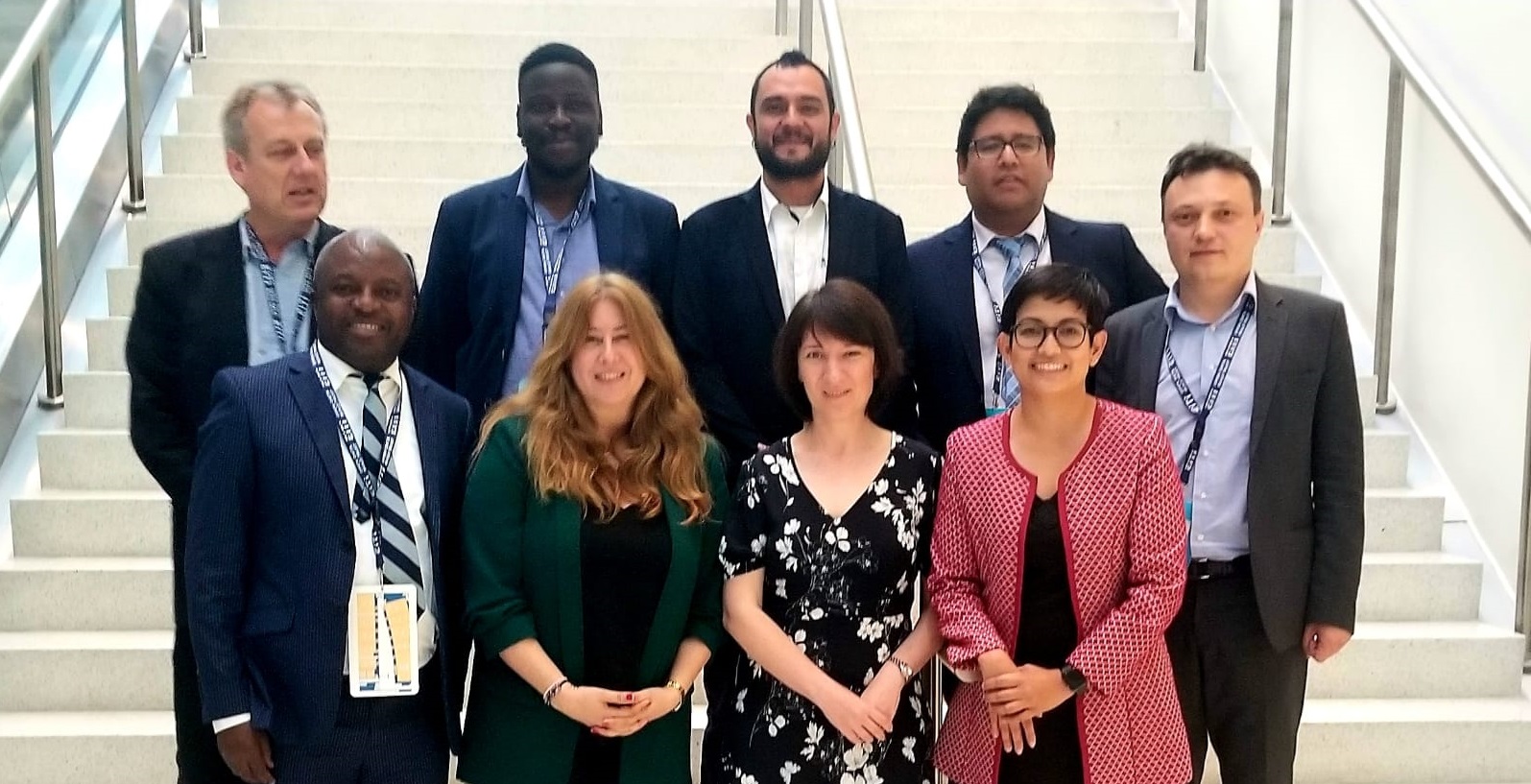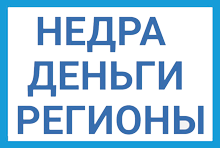As civil society representatives on the international board of the Extractive Industries Transparency Initiative (EITI), we are deeply disappointed that consensus was not reached at our 30 June Board meeting on terminating the membership of an EITI alternate Board member, who represents Exxon on the Board and who was the subject of a complaint submitted in February by Publish What You Pay - United States (PWYP-US). EITI is a multi-stakeholder platform where governments, companies, and civil society all have a voice.
Thus, we are making our position known, as the concerns underlying the complaint – and the lack of urgent and concrete Board action to address those concerns – have raised serious questions from multiple stakeholders about the integrity and credibility of the EITI as a global transparency and good governance initiative. The complaint pertains to a more than decade-long pattern of behavior that has been harmful to the EITI’s goals
This pattern of behavior by a small, but influential, cohort of companies on the EITI board has been characterized by two core elements:
-
Reputational open-washing: US oil majors have benefited from the reputational benefits of being associated with the EITI as a transparency initiative, while simultaneously lobbying behind the scenes to block and weaken regulations that would mandate such transparency. In the complaint the Board discussed on 30 June, of significant concern were public records showing that the relevant EITI Board member, a senior advisor in Exxon’s Washington DC office, had participated in at least four meetings with the US Securities and Exchange Commission (SEC) related to the proposed third rule for Section 1504 of the Dodd-Frank Act. Each of these meetings was alongside the American Petroleum Institute (API), which advocated that the SEC rule should not align with the EITI Standard in requiring detailed project-level company reporting. In at least one meeting memorandum, this EITI Board member is listed as being one of the “representatives from the American Petroleum Institute.” These circumstances appear alarmingly similar to the behavior that a Greenpeace investigation revealed only a few hours after the 30 June EITI Board meeting had concluded regarding company tactics of publicly espousing support for transparency and environmentally sound policies, while simultaneously going “under the umbrella of API” as cover to work against laws that would advance those goals. It causes us grave concern that the Board failed to reach consensus to condemn and demand concrete accountability for similar circumstances that have harmed the EITI’s mission of increasing transparency in the extractive sector.
-
Non-compliance with EITI reporting standards: The EITI has outlined eight supporting company expectations. A recent assessment by the EITI International Secretariat found that “30 percent (30%) of EITI supporting companies are not meeting [the second] expectation because they do not disclose taxes and payments by country or by project in non-EITI countries, and where they do not provide these disclosures they do not state why.” Public reporting in the US by Chevron and Exxon does not disclose the requisite taxes and payments, nor state why they do not provide such disclosures. This not only violates the EITI supporting company expectations, but is also especially troubling because both companies are represented on the EITI International Board. A 2018 complaint was filed that relates to these circumstances. The response to that complaint from the EITI Chair at the time notes: “From March 2014 - November 2017, the United States implemented the EITI. A number of US companies refused to report in accordance with the procedures developed by the US EITI, including several EITI supporting companies (Chevron, ConocoPhillips, ExxonMobil, Hess and Noble Energy). While it is not uncommon for companies to occasionally miss reporting deadlines, it is unprecedented that EITI supporting companies made a conscious decision not to report. It is serious when supporters of the EITI as a group undermine EITI implementation.” This undermining of EITI implementation must stop. The 70% of supporting companies that are making the requisite tax disclosures show that this transparency is feasible.
The position we expressed at our 30 June extraordinary meeting was that this pattern of behavior violated Board member responsibilities to “act in the best interests of the EITI” (as required under Article 12(1) of the EITI Articles of Association) and to make “the EITI requirements the internationally accepted standard for transparency in the oil, gas and mining sectors” (as required under Article 2(2) of the EITI Articles of Association). Thus, it was our view that termination of EITI Association Membership (and consequently EITI Board membership) was warranted on the basis of Article 5(5)(i) of the EITI Articles of Association, which states: “The EITI Board may terminate any Member’s Membership of the EITI Association if [t]he Member, or the country or other entity the Member represents, does not comply with these Articles of Association…”
This harmful behavior has gone on too long, and another statement of disappointment will not suffice. The inability to enforce accountability when companies on the Board undermine EITI’s mission and refuse to report under basic EITI standards is greatly damaging to the credibility of the EITI, and it leaves a vacuum of trust that will require some substantial effort to rebuild. The EITI’s purpose is building transparency and accountability across the extractives sector, but lack of concrete action on this case demonstrates a concerning lack of consensus within the Board around the EITI’s core principles. We feel the EITI Board now needs to urgently redouble efforts to live up to these principles.
Having committed years of individual and institutional work to advancing EITI, we remain deeply committed to ensuring the integrity and continued relevance of the initiative. With that goal in mind, we now set forth the following key elements that we feel need to be urgently implemented to begin creating accountability for the significant failings of some so-called supporting companies to actually live up to the EITI supporting company expectations:
-
As a transparency initiative, the EITI needs to be transparent itself. We reiterate our motion, made during the 9-10 June Board meeting, that the EITI Secretariat’s detailed company-by-company assessment of compliance with the EITI supporting company expectations be made public immediately. The non-disclosure of the disaggregated information is inconsistent with what EITI stands for. We also recommend that the materials related to the PWYP-US complaint, including related responses and legal advice, should be made publicly available. Similar materials are publicly available regarding the 2018 complaint on related matters. While we appreciate that sensitivities exist, as the recent complaint involves an individual, our understanding of legal advice is that public disclosure can still be pursued given that there are public interest concerns involved in the complaint. If such materials cannot be made public, there should at least be a public explanation about the efforts that were undertaken to publish them and why disclosure was not feasible.
-
The EITI supporting company expectations need to be reviewed and strengthened, and companies should be regularly assessed against them. The 30% of companies that failed to disclose taxes and other payments must now disclose those payments or explain why they do not, including in non-EITI countries where they operate. However, for companies that sit at the highest level of EITI’s leadership – the EITI International Board – simply explaining away their non-disclosure will not suffice. Representatives on the EITI Board should demonstrate high levels of transparency themselves, not serve as the lowest common denominator. Companies who refuse to disclose project-level tax payments that are in line with the EITI Standard approach to project-level reporting across their operations, including in non-EITI countries, should not serve on the Board. If barriers to such disclosures exist, companies serving on the Board should actively work to remove those barriers, including by publicly supporting the operationalisation of laws and regulations on project-level reporting that are harmonized with the EITI Standard, and document their efforts to do so.
-
In addition, the time is overdue for EITI to adopt compliance standards for companies, with review, scoring, and sanctions. For the past years, EITI has focused energy on assessing government transparency levels, when companies should be held equally accountable to be transparent. To restore the integrity and credibility of the EITI as a global transparency and good governance initiative, we must immediately work towards the adoption of more formalized company standards.
We hope that these proposals will be urgently considered, adopted, and implemented by the Board to ensure real accountability and to restore trust and adherence to EITI’s core principles.
Making companies accountable – a core aim of the EITI since its inception – is a fundamental obligation for an initiative whose mission is transparency and accountability, and is the only way for EITI to rebuild trust and credibility. We remain committed to working towards this goal.
- The EITI Board Civil Society Representatives
At the date of this statement, members of the EITI Board representing civil society were:
- Mr Cesar GAMBOA, Executive Director, Derecho, Ambiente y Recursos naturales, Perú
- Mr Óscar PINEDA (Alternate), Project on Organizing Development Education and Research (PODER), Mexico
- Mr Brice MACKOSSO, Commission Justice et Paix, Republic of Congo
- Mr Mtwalo MSONI (Alternate), Global Tax Advisor- ActionAid Nigeria
- Ms Cielo MAGNO, Bantay Kita/PWYP Philippines; Associate Professor University of the Philippines
- Ms Diana EL KAISSY (Alternate), Advisory board member at the Lebanese Oil and Gas Initiative-LOGI, Lebanon
- Mr Oleksiy ORLOVSKY, International Renaissance Foundation, Ukraine
- Ms Mariya LOBACHEVA (Alternate), Executive Director, Echo - Public Association, Kazakhstan
- Ms Erica WESTENBERG, Director of Governance Programs, Natural Resource Governance Institute (NRGI)
- Mr Simon TAYLOR (Alternate), Co-founder and Director, Global Witness
















